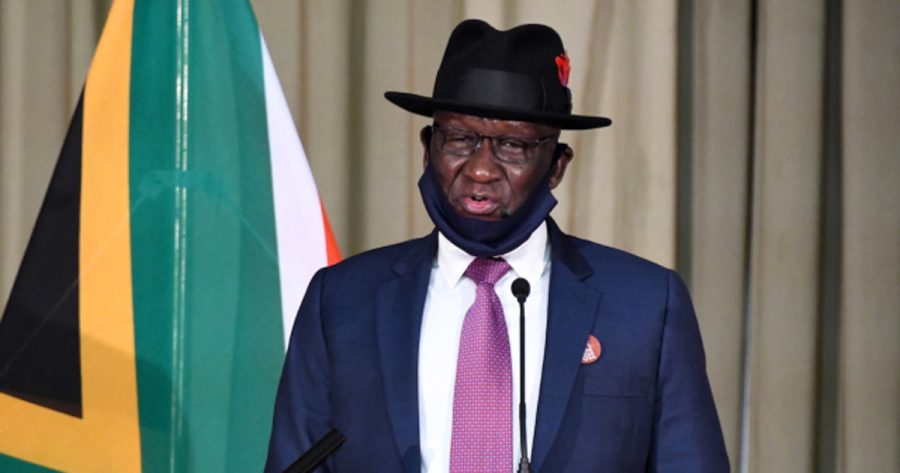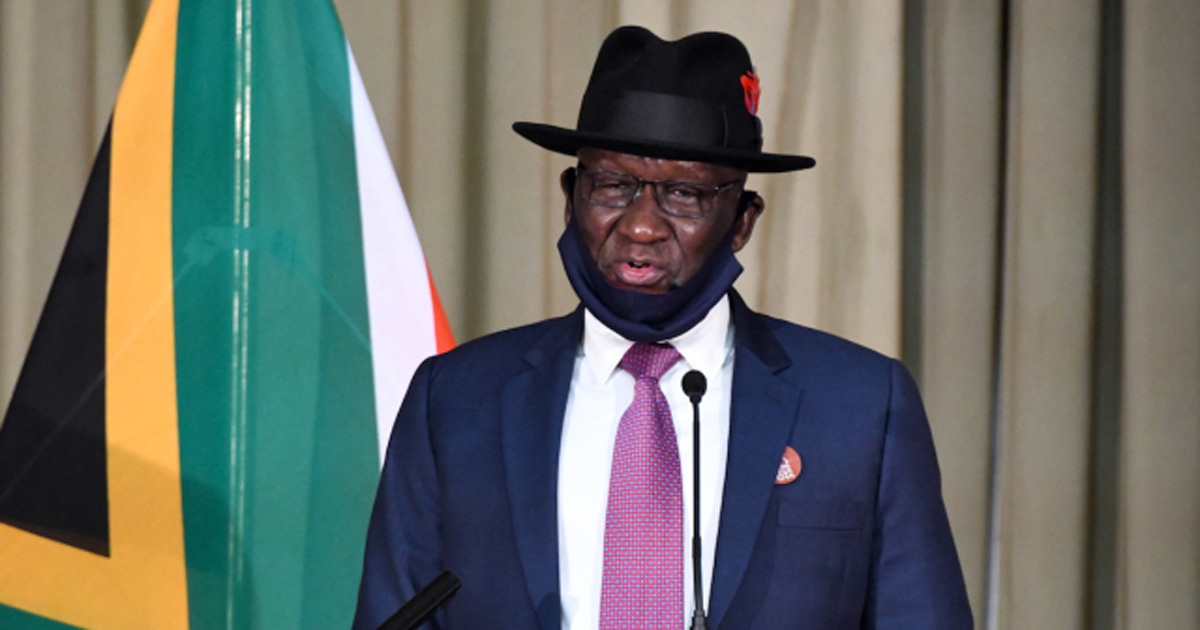
SA Increases Police Presence to Monitor Adherence to Alcohol Ban and Curfew
Following the reinstatement of the alcohol ban and curfew, South African police will do random stop and search operations to ensure citizens adhere to the imposed regulations, Police Minister Bheki Cele announced today. “Throughout all of this, law enforcement officials will be dependent upon the cooperation of community members to ensure these operations are handled […]

Following the reinstatement of the alcohol ban and curfew, South African police will do random stop and search operations to ensure citizens adhere to the imposed regulations, Police Minister Bheki Cele announced today.
“Throughout all of this, law enforcement officials will be dependent upon the cooperation of community members to ensure these operations are handled in the best possible spirit and with the least disruption,” he said.
The increase in visibility follows President Cyril Ramaphosa’s announcement to ban alcohol and reinstate the curfew between 9p.m. and 4a.m. as a measure to curb the runaway rate of COVID-19 infections.
Cele outlined the enforcement measures on Wednesday during a briefing by the Ministers of the Justice, Crime Prevention and Security (JCPS) Cluster, who serve in the National Coronavirus Command Council.
In addition to the stop and search operations, police will increase visibility, roadblocks and patrols, where applicable, on the streets, at malls and other areas where people ignore social distancing protocols.
With the reintroduction of the ban, alcohol may be consumed in private but it may not be transported, sold or dispensed at any liquor outlet, whether bottle store, bar, shebeen or restaurant.
“People are allowed to drink alcohol in private, inside their homes or their yards but not in public spaces, on pavements or in their vehicles.
“Law enforcement officials have been instructed to act resolutely to enforce compliance with the regulations, arresting those who breach the regulations and ensuring that they are successfully prosecuted. Convictions will result in either fines or jail terms, depending on the discretion of the court,” said the Police Minister.
Cele appealed to the public not to buy any alcohol during this time, as all alcohol sales are currently illegal.
“If anyone is caught doing so, they will be prosecuted. The cluster is urging communities to work with law enforcement agencies and officials to continue reporting anyone transgressing the regulations,” he said.
Still on alcohol, Cele said the cluster had noticed an increase in social gatherings before and after funerals. These include the night vigil before the burial and the so-called “after tears” following the burial, which remain prohibited gatherings.
“No alcohol may be consumed at the actual funeral either,” stressed the Minister.
Enforcement of the curfew
With the reintroduction of the daily curfew between 9p.m. and 4a.m., Cele said members of the South African Police Service, South African National Defence Force and Traffic Departments will patrol and enforce the regulation.
Those who work at night or early in the morning will have to produce a permit of movement when they are requested to do so by law enforcement officials.
Fighting gender based violence and femicide
Turning to gender-based violence, what President Ramaphosa has named the country’s second pandemic, Cele said the security cluster has also noted with concern the increase of attacks and murder of women and children.
In light of this, the Minister instructed all members of the South African Police Service to ensure that they prioritise the fight against GBV throughout the pandemic and beyond.
“We are urging all officers to improve their response to crimes committed against women, children and other vulnerable groups,” said the Minister.
He also highlighted the correlation between an increase in violence and gender-based violence, and the sale of alcohol.
“GBV is always there but it took a serious turn from the 1st of June after the unbanning of alcohol. There is a strong belief that violence increases when there is a lot of availability of alcohol,” said the Minster.
To improve the situation, Cele said 300 SAPS members are undergoing special training for gender-based violence to serve the police’s GBV units.
Over 7,000 Members of the SAPS have tested positive for Covid-19
Over 7 000 members of the South African Police Service (SAPS) have tested positive for COVID-19, Cele revealed.
“COVID-19 has been costly when it comes to the SAPS. Up to this point, we have 7 021 that have tested positive but we are glad to say that 2 021 recoveries have been made,” said the Minster.
Cele said over 4 000 police members are in isolation, 150 of which are in hospital.
“We have 53 fatalities up to this point,” he said at the briefing held at the Union Buildings.
Cases against the police
Meanwhile, 685 cases have been opened against the police since South Africa’s lockdown, aimed at curbing the spread of the virus, came into effect in March. The cases were against police and metro police members.
To date, 227 of these have been investigated and finalised.
“The biggest number [in terms of cases relates to] assault and discharge of firearms in public,” said the Minister.
– SAnews.gov.za
